Tuesday, April 23, 2024
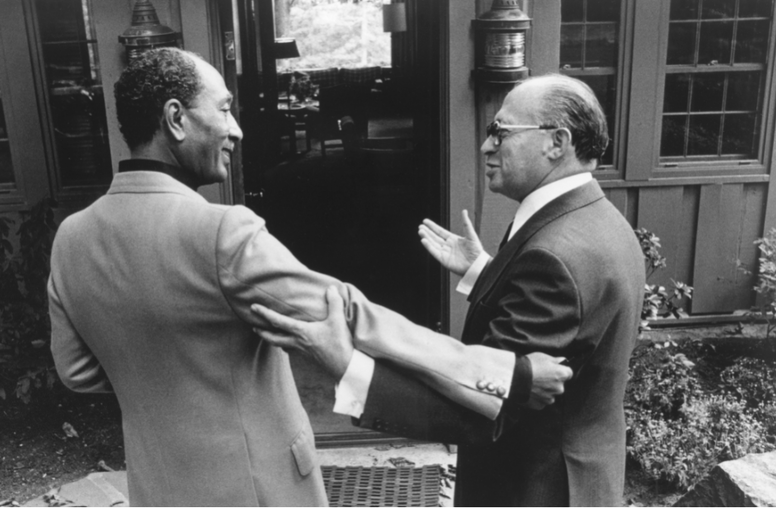
Yes, we can meet on online. But can we negotiate peace there?
The spread of the coronavirus has forced mediators and their international partners to halt the face-to-face meetings typically used in building peace. Feeling a sense of urgency, practitioners have scrambled to upgrade their use of alternatives—notably online consultations, dialogues and workshops. Digital tools are being quickly developed that could provide opportunities for peacebuilding unimaginable just a couple of years ago. How can we ensure that this development, now accelerated by the COVID pandemic, remains viable in practice?
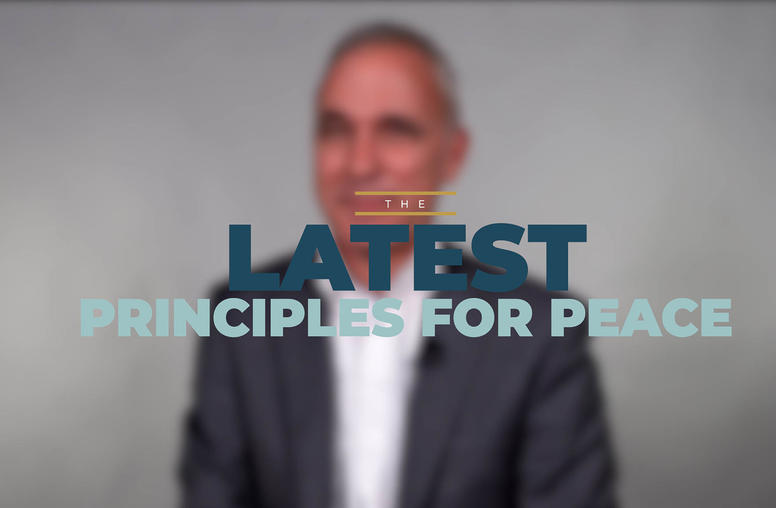
The Latest: Three Things to Know About the Principles for Peace Initiative
We often see peacebuilding play out as the search for political consensus among elite brokers — but for true, lasting peace to take root, peace must become a lived experience for those on the ground. The Principles for Peace is an initiative that aims to identify a common language that ensures the people suffering from conflicts are at the center of conflict resolution processes. USIP’s Juan Diaz-Prinz and Principles for Peace Foundation’s Bert Koenders, Annika Söder and Teresita Quintos Deles discuss this new way to frame the search for peace; the initiative’s emphasis on implementing peace agreements; and how diplomatic actors can use these principles, standards and norms to fundamentally reshape current peace processes.
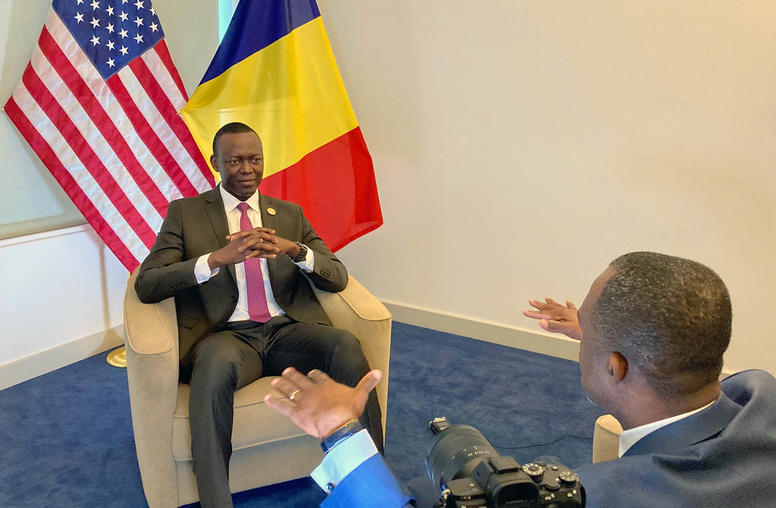
A Conversation with Chadian Prime Minister Succès Masra
Nearly three years into its transition process, Chad faces a pivotal milestone: the organization of presidential and local elections in 2024. Against a backdrop of regional turbulence and instability, the holding of credible and transparent elections in Chad will be a key test for democracy and durable peace. USIP spoke with Chad’s new Prime Minister Succès Masra on pathways to strengthen civic space and political participation ahead of Chad’s general elections and how Chad’s transition might inform other political transitions throughout Africa.
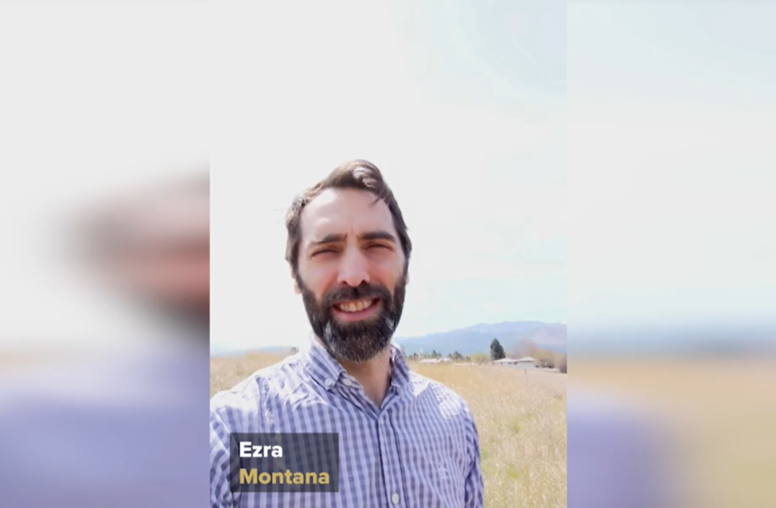
USIP Marks Teacher Appreciation Week 2020
Every May, the U.S. Institute of Peace celebrates Teacher Appreciation Week by honoring the important role teachers play as peacebuilders. This year, Teacher Appreciation Week and its message hold special resonance, as the coronavirus pandemic has upended education not just in the U.S., but around the world. In the face of this unprecedented challenge, teachers across the country are still delivering education from their homes. USIP and alumni of the Institute’s Peace Teachers Program have joined together to thank educators for all they are doing during this pandemic and for showing why it’s so vital to continue teaching about peace during this crisis.

The Latest @ USIP: Children Born of War
Unfortunately, children born as a result of conflict-related sexual violence have been overlooked in the international community’s peacebuilding agenda for a long time. Eunice Otuko Apio, a member of Uganda's Parliament and a finalist for USIP’s 2022 Women Building Peace Award, discusses why children born of war have historically been marginalized in peace processes, how resources can be used to support them and their families more effectively, and how women can contribute to peacebuilding more broadly.

The Latest @ USIP: Democratic Renewal in Africa
Democracy remains quite popular throughout Africa. But many Africans see a mismatch between the promises of democratic governance and their leaders’ inability to address prolonged bouts of corruption, abuse and insecurity. This mismatch can often lead to a political culture that sees military coups as a viable alternative. Jide Okeke, regional coordinator for Africa at the U.N. Development Programme, discusses the risk factors that precipitate military coups, and the steps that regional and international actors can take to strengthen democratic governance and security.

The Latest @ USIP: How Civil Society is Addressing Haiti’s Crisis
In the past few years, life in Haiti has been dominated by gangs’ growing control over huge swathes of the capital, Port-au-Prince. For Haitian families, this crisis has meant extreme violence, pervasive unemployment, lack of education for children and reduced access to health care. 2023 Women Building Peace Award finalist Dr. Marie-Marcelle Deschamps serves as the deputy executive director, the head of the women's health program and the manager of the clinical research unit of GHESKIO Centers in Port-au-Prince. She spoke to USIP about how her work helps women and their families, and what the global community can do to help Haitian civil society address this devastating humanitarian crisis.
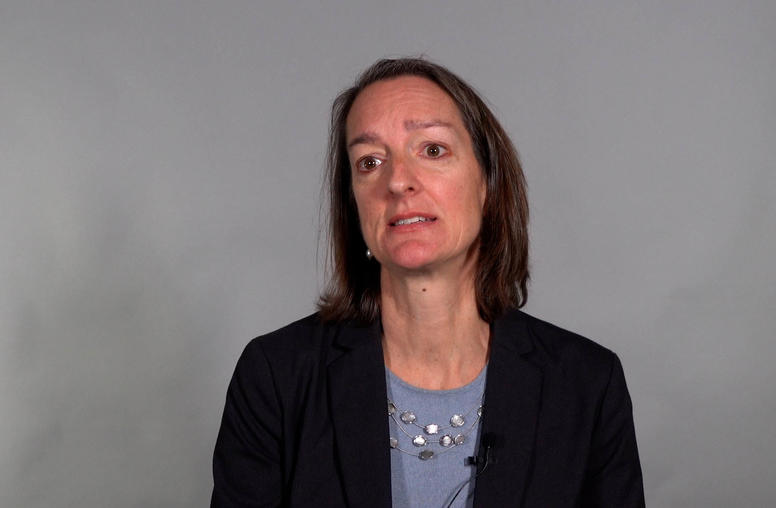
RISE Action Guide: Addressing the Collective Trauma of Violent Extremism
The territorial defeat of ISIS gave way to another challenge, one that is common with violent extremist groups around the world: How to handle the tens of thousands who lived under — and engaged with — the Islamic State. With just under 50,000 people from over 60 countries still consigned to displacement camps and detention centers in the region, the lack of a long-term solution offers ISIS a possible recruiting source to reconstitute their ranks. USIP’s Rehabilitation and (Re)integration through Individual, Social, and Structural Engagement (RISE) Action Guide offers an approach to develop viable exit ramps for those who have engaged in violent extremism to return to society — as well as support for the communities affected by it.

USIP Explains: Community Dialogue in Northern Sinjar
Ten years after ISIS’ genocide against them, the wounds of the Yazidi community in Iraq’s Sinjar district remain fresh as thousands remain displaced and even more await justice for the crimes perpetrated against them. Meanwhile, despite living in peaceful coexistence prior to ISIS’ campaign, the conflict planted seeds of division among Sinjar’s various tribes and communities — resulting in tensions that threatened to tear the district apart even after ISIS’ defeat.

The Latest @ USIP: Reclaiming Human Rights in Afghanistan
Since taking power in 2021, the Taliban have imposed their own interpretation of Islamic law onto the people of Afghanistan and consistently rolled back human rights protections — especially for women and girls — all while the country struggles to recover from decades of conflict and economic crisis. USIP spoke with Fatima Gailani, the former president of the Afghan Red Crescent Society, about the various ways Afghans can put pressure on the Taliban to reclaim their rights and demand a better future.
